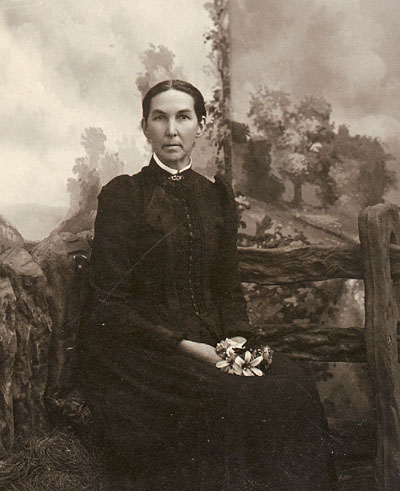Stewart, Agnes
From Lane Co Oregon
(Difference between revisions)
| Line 4: | Line 4: | ||
|occupation=Teacher | |occupation=Teacher | ||
|birthplace= | |birthplace= | ||
| - | |birthdate= | + | |birthdate=1832 |
| - | |death= | + | |death=[[1905]] |
|burial= | |burial= | ||
| - | |family= | + | |family=[[Stewart, John]] (father) |
|education= | |education= | ||
|hobbies= | |hobbies= | ||
| Line 20: | Line 20: | ||
=History= | =History= | ||
| - | + | Stewart, Agnes (1832-1905) | |
| - | + | ||
| + | She was daughter of [[Eugene]] pioneer, [[Stewart, John|John Stewart]]. In [[1854]], Springfield School District No. 19 was formed, and the first teacher, [[Stewart, Agnes|Agnes Stewart]], was appointed. A small [[Pioneer School Building|schoolhouse]] was built near the corner of [[South 7th Street (Springfield)|South Seventh]] and [[South B Street (Springfield)|B Street]]s, and although considered to be a “crude building,” the school served the community until the [[:Category:1880s|1880s]] (Graham 1978a). | ||
[[Category:Springfield residents (1800s)]] [[Category:Springfield schools]] | [[Category:Springfield residents (1800s)]] [[Category:Springfield schools]] | ||
Revision as of 20:23, 15 August 2007
Locations · People · Equipment · Chronology · Index · Categories · Browse · Discussion · FAQ · Help · Things to do · Article requests
 |
|
| Agnes Stewart | |
|---|---|
| Personal Identity | |
| Occupation | Teacher |
| Birthplace | |
| Birthdate | 1832 |
| Death | 1905 |
| Place of Burial | |
| Family | Stewart, John (father) |
| Personality & Physical nature | |
| Education | |
| Hobbies & Interests | |
| Religion | |
| Gender | Female |
| Heritage | Caucasian |
| Physical Characteristics | |
| Social information | |
| Affiliation | Springfield School District No. 19 |
| Residence | Springfield |
History
Stewart, Agnes (1832-1905)
She was daughter of Eugene pioneer, John Stewart. In 1854, Springfield School District No. 19 was formed, and the first teacher, Agnes Stewart, was appointed. A small schoolhouse was built near the corner of South Seventh and B Streets, and although considered to be a “crude building,” the school served the community until the 1880s (Graham 1978a).
